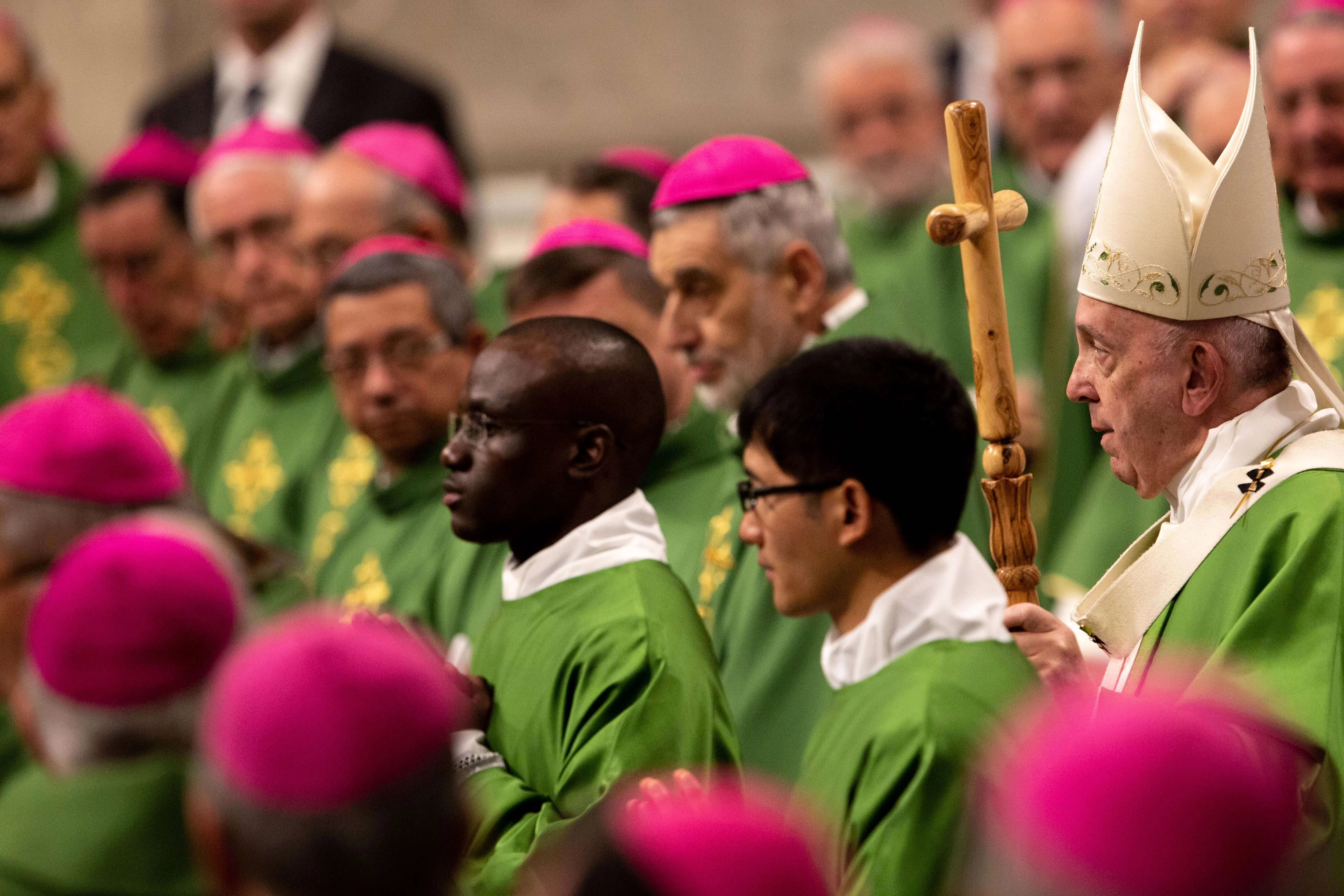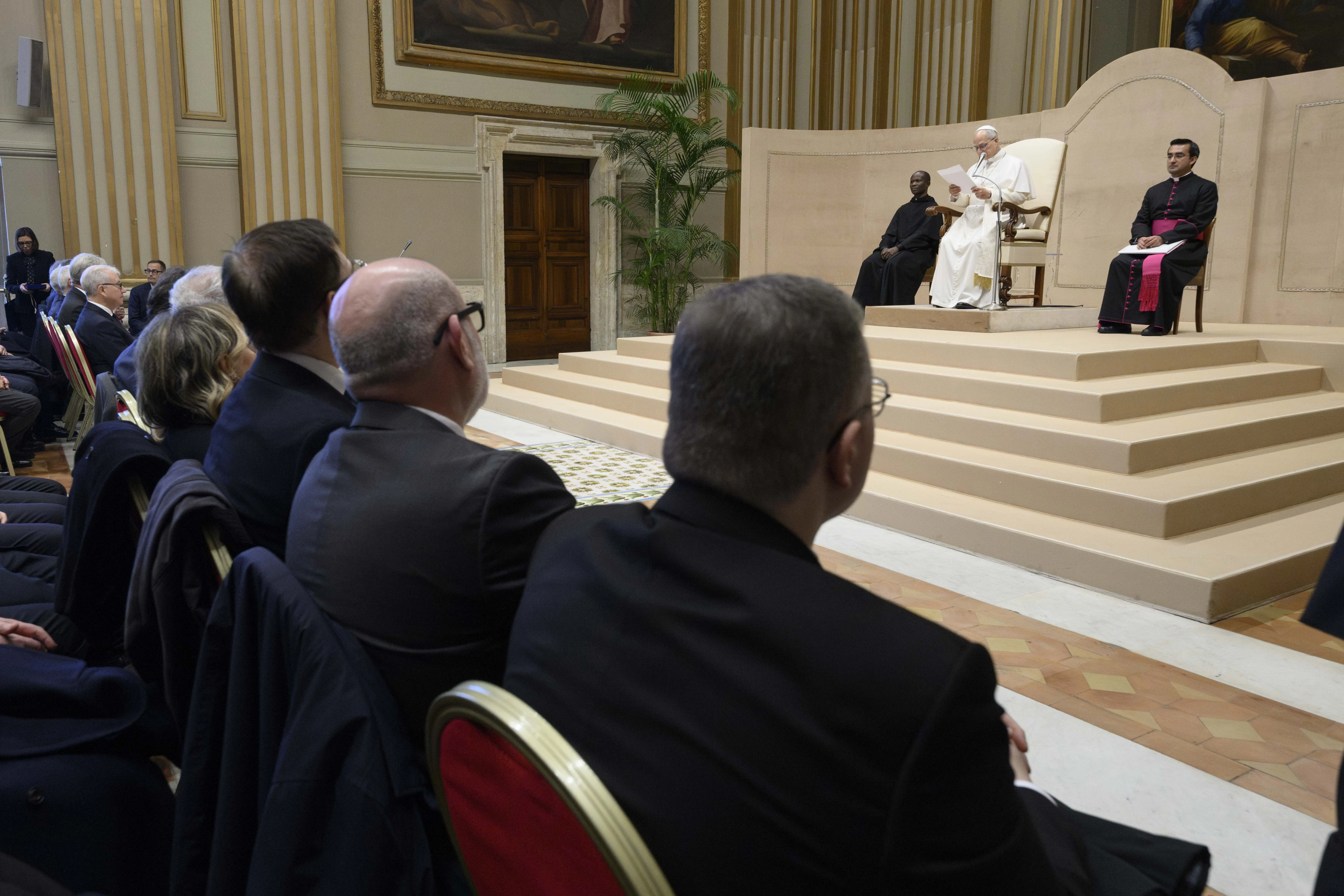In addition to asking that bishops generously encourage missionaries to the Amazon, he said that the “structure and content” of priestly formation should “be thoroughly revised, so that priests can acquire the attitudes and abilities demanded by dialogue with Amazonian cultures.”
“This formation must be preeminently pastoral and favour the development of priestly mercy,” he added, noting that the lack of seminaries for indigenous people was mentioned at the synod.
The Mass, Pope Francis said, “signifies and realizes the Church's unity,” which “welcomes the abundant variety of gifts and charisms that the Spirit pours out.”
The Mass thus “requires the development of that rich variety.”
To that end, “Priests are necessary, but this does not mean that permanent deacons (of whom there should be many more in the Amazon region), religious women and lay persons cannot regularly assume important responsibilities for the growth of communities.”
(Story continues below)
“Consequently, it is not simply a question of facilitating a greater presence of ordained ministers who can celebrate the Eucharist. That would be a very narrow aim, were we not also to strive to awaken new life in communities. We need to promote an encounter with God’s word and growth in holiness through various kinds of lay service.”
An inculturated Church in the Amazon “requires the stable presence of mature and lay leaders endowed with authority and familiar with the languages, cultures, spiritual experience and communal way of life in the different places, but also open to the multiplicity of gifts that the Holy Spirit bestows on every one,” he said.
“This requires the Church to be open to the Spirit’s boldness, to trust in, and concretely to permit, the growth of a specific ecclesial culture that is distinctively lay. The challenges in the Amazon region demand of the Church a special effort to be present at every level, and this can only be possible through the vigorous, broad and active involvement of the laity.”
The pope also highlighted consecrated life and base communities, which is a term used to describe small Christian communities in the Amazon region.
He encouraged “the growth of the collaborative efforts being made through the Pan Amazonian Ecclesial Network and other associations” to implement the proposal made at the Fifth Episcopal Conference of Latin America at Aparecida in 2007 to “establish a collaborative ministry among the local churches of the various South American countries in the Amazon basin, with differentiated priorities”.
The Pan Amazonian Ecclesial Network, or REPAM, lists among its works “protection for the 137 ‘contactless tribes’ of the Amazon and affirmation of their right to live undisturbed.”
Francis also said that “ the Amazonian region sees a great deal of internal mobility” and migration, and thus “thought should be given to itinerant missionary teams and 'support provided for the presence and mobility of consecrated men and women closest to those who are most impoverished and excluded'.”







